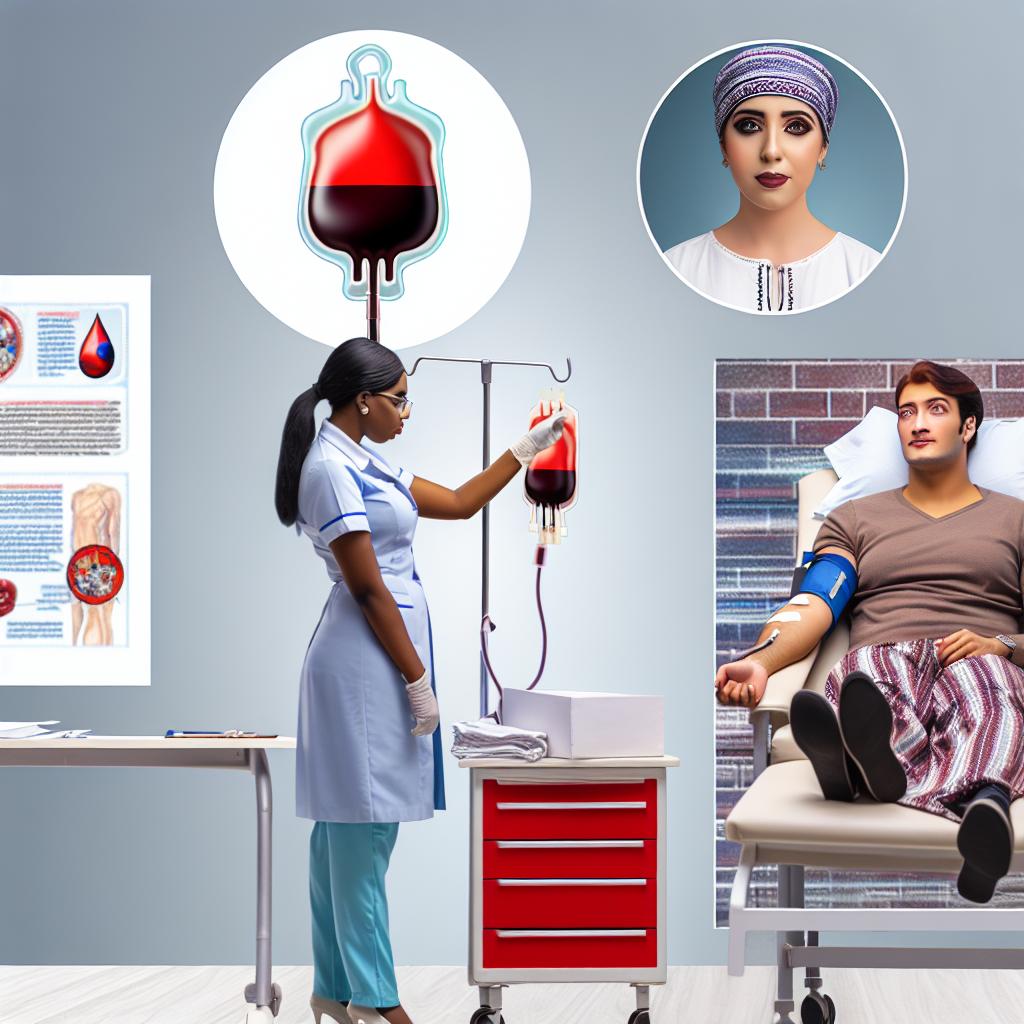Understanding Anemia
Anemia is a medical condition defined by a lack of enough healthy red blood cells or hemoglobin in the blood. Red blood cells are vital for carrying oxygen from the lungs to all parts of the body, and a deficiency can result in inadequate oxygen delivery to tissues. This insufficiency often manifests as fatigue and weakness due to the body striving harder to function with limited resources. Inadequate oxygen affects bodily functions and overall well-being, necessitating understanding and addressing the causes and treatments of anemia effectively.
Causes of Anemia
Anemia can result from a multitude of factors. One major cause is **iron deficiency**, which is crucial for hemoglobin production. When the body lacks iron, it cannot produce sufficient hemoglobin, leading to anemia. Chronic diseases are another factor, with conditions like kidney disease affecting hormone production essential for red blood cell formation. **Genetic disorders** like thalassemia and sickle cell anemia can also impair red blood cell production or lifespan, causing chronic anemia. Other factors may include poor diet, significant blood loss from injury or surgery, or conditions affecting nutrient absorption.
The Role of Blood Donation
Blood donation is a critical aspect of managing and treating anemia, providing an essential source of relief for individuals suffering from this condition. When one donates blood, it undergoes processing to extract key components such as red blood cells, plasma, and platelets. Each component serves therapeutic purposes, with red blood cells being pivotal in anemia treatment.
Benefits of Red Blood Cells in Anemia Treatment
Red blood cells, enriched with hemoglobin, play an indispensable role in oxygen transport within the bloodstream. Individuals with anemia often benefit from **red blood cell transfusions**, which help replenish oxygen levels efficiently and can drastically alleviate symptoms like tiredness, dizziness, and shortness of breath. These physical manifestations result from the body compensating for the lack of oxygen-rich cells, and transfusions provide a rapid corrective action.
For those with severe anemia, timely transfusions can prevent severe complications, including organ damage resulting from prolonged oxygen deprivation. Transfusions offer critical support, facilitating sufficient oxygen delivery and stabilizing patient health until underlying causes are addressed.
Chronic Anemia Management
Management of chronic anemia varies depending on the underlying cause. For patients with chronic kidney disease, their condition impairs the production of erythropoietin, a hormone prompting red blood cell creation. Thus, regular monitoring and blood transfusions become necessary to support the body’s oxygen needs. Similarly, individuals with genetic disorders, like sickle cell anemia or thalassemia, may face chronic anemia, necessitating lifelong management strategies, often involving consistent blood transfusions.
These patients’ dependency on transfusions underscores the importance of blood donations, ensuring availability for those whose lives and well-being rely heavily on donated blood to treat chronic anemia effectively.
Encouraging Blood Donation
Given its importance, blood donation should be actively encouraged, particularly considering the continuous demand for blood, crucial for anemic patients and numerous medical applications. Events such as blood donation drives are often organized by hospitals and blood banks to maintain a robust and readily available supply of blood products. By **becoming a donor**, each individual is part of an essential network that supports the health system’s capability to address conditions like anemia that require constant medical attention.
Blood donation is a simple yet profound way individuals can contribute to society. It offers hope and sustenance to many, especially those living with chronic anemia. Facilities like the American Red Cross provide resources and guidance on donation processes, eligibility, and locations. Donating blood not only supports treatment initiatives but can significantly alter the course of an individual’s life by improving their health outcomes and quality of life.
Types of Anemia
Anemia comes in various forms, each with distinct causes and implications. Iron deficiency anemia is the most common type and arises due to insufficient iron, a key component of hemoglobin. Dietary modifications, iron supplements, or medications often address this. Another type, **vitamin-deficiency anemia**, involves insufficient vitamin B12 or folate, leading to improper blood cell production. Autoimmune conditions or digestive issues can often cause this deficiency.
Aplastic anemia, a more severe form, involves the bone marrow’s inability to produce enough blood cells, requiring intensive treatments such as transfusions or even bone marrow transplants. On the genetic side, hemolytic anemia results from premature breakdown of red blood cells, sometimes necessitating specific drugs or surgical interventions, depending on severity.
Anemia and Lifestyle Considerations
Addressing anemic symptoms often involves lifestyle modifications alongside medical treatments. A balanced diet rich in iron, B vitamins, and vitamin C can significantly influence anemia management and prevention. Foods such as leafy greens, lean meats, and beans are rich in these nutrients. Adequate hydration and regular physical activity also enhance blood flow and overall health.
Regular health evaluations help monitor blood levels and catch potential anemia symptoms early, allowing for timely interventions. Those with chronic anemic conditions benefit from support networks providing resources and information for managing daily challenges presented by their condition.
Future Perspectives and Research
Ongoing research in anemia focuses on understanding genetic causes and exploring innovative treatments. Advances in genetic engineering show promise for those with congenital forms of anemia, potentially offering long-term solutions that mitigate or even cure their conditions. Research efforts aimed at developing more efficient synthetic blood products could revolutionize how doctors treat anemia, reducing reliance on blood donors and offering more sustainable treatment options.
Scientific understanding and approaches to managing anemic conditions continue to evolve, resulting in improved treatment protocols and patient outcomes. Enhanced awareness and support for individuals managing anemia remain critical, both at the societal and medical levels. As awareness and technology continue to advance, the approach to anemia, particularly chronic forms, becomes more sophisticated, offering hope for improved patient care and disease management strategies.
In summary, anemia is a complex and multifaceted condition with significant health implications. Understanding its causes, treatments, and the vital role of blood donation helps emphasize the importance of managing and potentially overcoming the condition, transforming patient lives positively.
